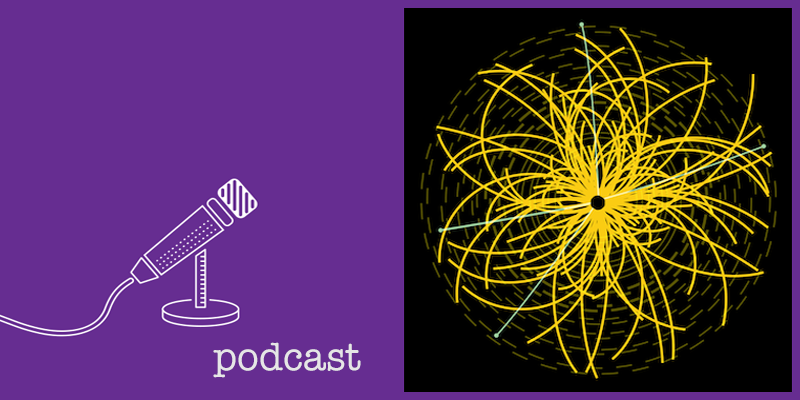Podcast: The Higgs Boson, Ten Years After
This podcast is part of a series of pieces that Physics Magazine is publishing to celebrate the 10th anniversary of the Higgs boson discovery. See also: News Feature: The Era of Higgs Physics; Poem: Higgs Boson: The Visible Glyph; Research News: A Particle is Born: Making the Higgs Famous; Q&A: The Higgs Boson: A Theory, An Observation, A Tool; and Collection: The History of Observations of the Higgs Boson.
In this episode of This is Physics, the Physics Magazine podcast, researchers with the two collaborations that discovered the Higgs boson—ATLAS and CMS—relive the 2012 announcement of the discovery. They also talk about what it’s like to work on Higgs experiments and what they would still like to learn about the mass-giving particle.
Podcast host Julie Gould speaks with the following guests: Joseph Incandela, University of California Santa Barbara/CERN; Jon Butterworth, University College London/CERN; Flavia de Almeida Dias, University of Amsterdam/CERN; Sahal Yacoob, University of Cape Town/CERN; and Victoria Martin, University of Edinburgh/CERN.
Music credit: Jarabi (Passion), performed by Derek Gripper, composed by Toumani Diabaté.
–Julie Gould
Julie Gould is a freelance science journalist and podcast producer based in London.




